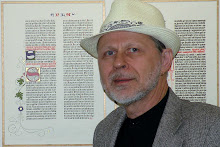23 February 2007
When Thomas discovers what has happened, he writes a final letter with misinformation in it and tells his wife that he, too, will be riding to war at long last because it is his duty to his country. He does, and survives the battle, but never again writes to his wife. When the dead are collected and Thomas never returns home, Ellen assumes he has been lost in battle.
In truth, he leaves the field victorious and he and Jane move to the western territories where he continues his life as a lawyer with Jane and a new name she has given him. In the rugged wilds of West Virginia, he and Jane make the kind of life for themselves that he dreamed of having with Ellen. Years later he is elected to congress as a representative from West Virginia.
His last letter is to Jane, describing what a close call he has had as President Adms thought he recognized him from years ago. Thomas has followed the love of his life and his country, rather than betray it to his tratorous wife.
In her final letter to her uncle, Ellen praises Thomas stating that it may well be his bones that lie in the tomb of the unknown soldier. She says that it is better this way than that he ever discovered her treachery against him and his country. She writes from Canada where she has fled to raise her children as goood citizens of the Crown.
Notes:
- I need to study letters of the period for style, headings, and so on.
- I need a good chronology of the American Revolution with a description of the battles that went well and those that failed.
- I need a good clean way of identifying the letters and a persona for the editor/compiler of these letters (descendent).
- I need a list of the major pieces of correspondence with the dates and parties involved.
- Thomas to Ellen
- Ellen to Thomas
- Ellen to her uncle
- Ellen's uncle to her
- Jane to her cousin
- Josiah Bartlet to his wife
- It may not work to use Josiah Bartlet as he is the namesake of the president on West Wing. He may as a result be too well known. Check other signers of the declaration for an equally obscure representative.
- I'm not sure I like Jane to be a servant or serving girl, but I can't think of another place where there would be opportunity for commerce between them and the assumption that she is deaf.
- There is a possibility of using a few lines of actual letters of the approximate dates between the fictional narratives. Jane's letter might be her journal instead of letters to a cousin.
- Is there a tomb of the unknown soldier for the Revolutionary War? If so, where is it?
22 February 2007
An Epistolary Novel by Nathan W. Everett
Synopsis
This is a new storyline that I am working on as a possible entry in NaNoWriMo in November of 2007. We'll see if it holds together as the time approaches.
Thomas Dowding is a devoted husband, patriot, and legal mastermind. He is the dependable and depended-upon assistant to Josiah Bartlet, Delegate to the Continental Congress from the colony of New Hampshire. As such, Thomas spends long periods of time in Philadelphia, away from his beloved wife, Ellen, and two children William and Mary, hoping to bring a declaration of freedom to the American people. During these absences, Thomas writes lengthy love letters to his beloved, chronicling, as well, his endeavors on behalf of the honorable men of the Congress.
Through Thomas and Ellen’s letters to each other, we see emerge a portrait of life in colonial America and the struggle for freedom. They have sacrificed their home life for the dream of an independent nation.
But Thomas is a conflicted man. In truth, he doubts the motives of those passionately arguing for independence. He doubts that the colonies will win the war with their mother England. “What child,” he asks, “ever wins a battle with its mother? We are disciplined to obey and honor her. And should the child succeed, what then should we think of it but that it has ill-treated its family?” Thomas doubts the faith in which he was raised, and even his love for his wife from whom he is so long absent.. He is, as he once jestingly suggests, a true Doubting Thomas.
But these things are never written to his wife. Thomas becomes acquainted with a servant, or serving girl, Jane, whom, through a mixture of circumstances, he assumes is deaf. She, for reasons of her own, declines to disabuse him of this notion. Operating under the assumption that she cannot hear what he is saying, he begins to unburden his soul to Jane. The Thomas that emerges through the letters of Jane to her cousin, Diane, in Maryland is a portrait of a frightened and soulful man with whom she falls hopelessly in love.
Through the letters of these three, and occasional missives from peripheral characters, the story congeals at the point when Thomas must show by action where his loyalties lie and what he really believe in. In one climactic event, related by each of the three principals, he must choose between wife and servant, England and America, heaven and hell. In that choice may lie the success or failure of The American Revolution.
